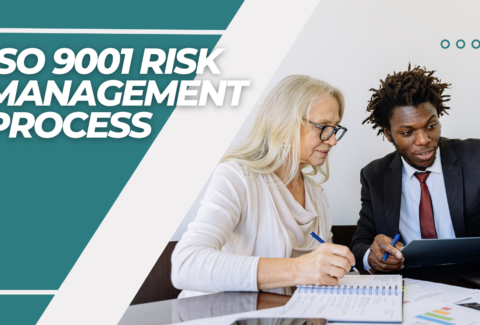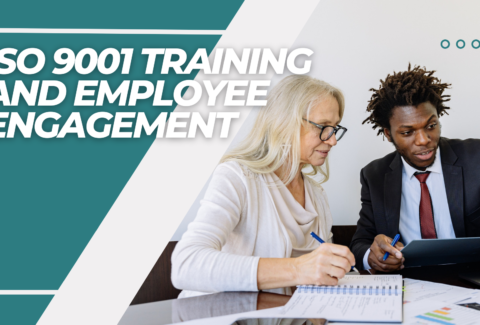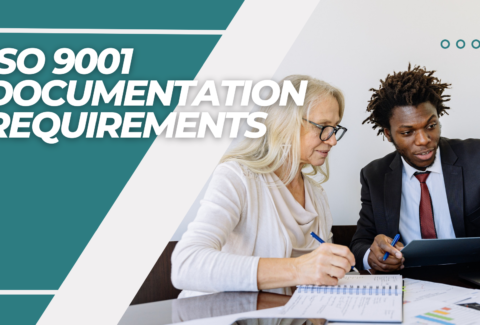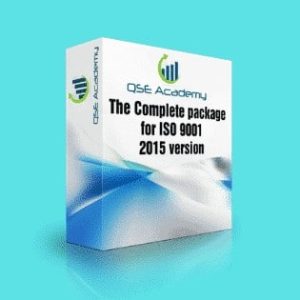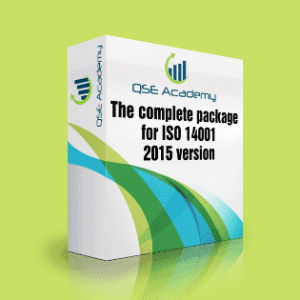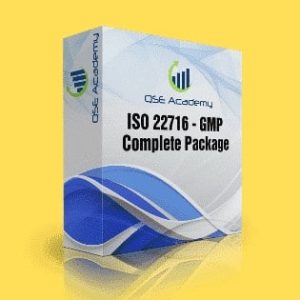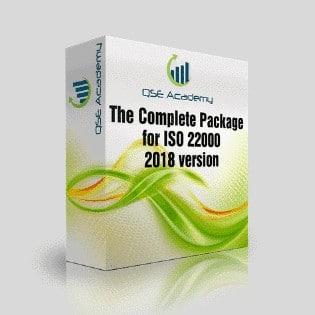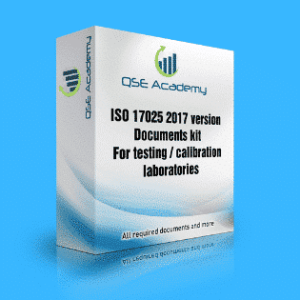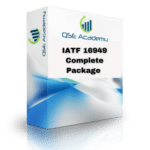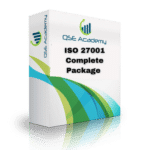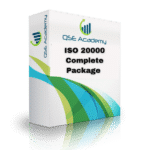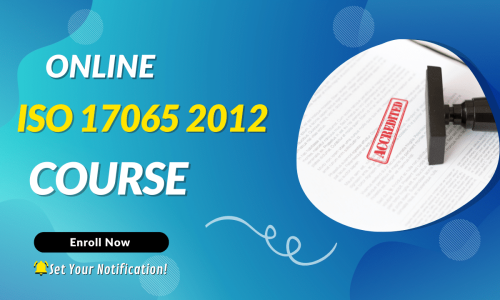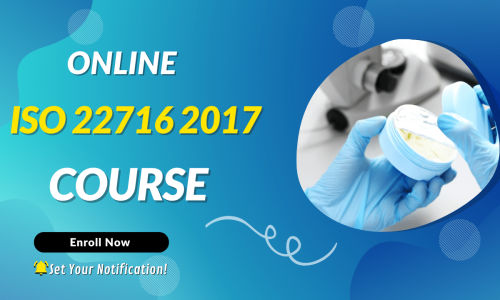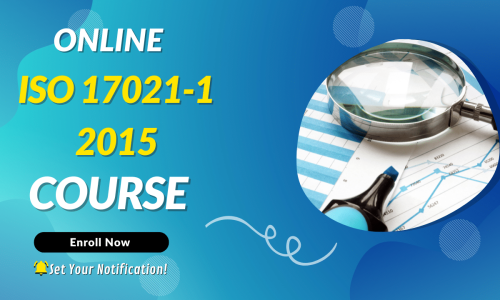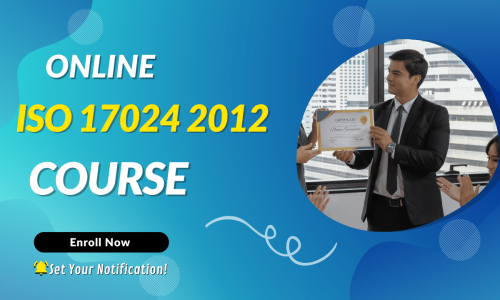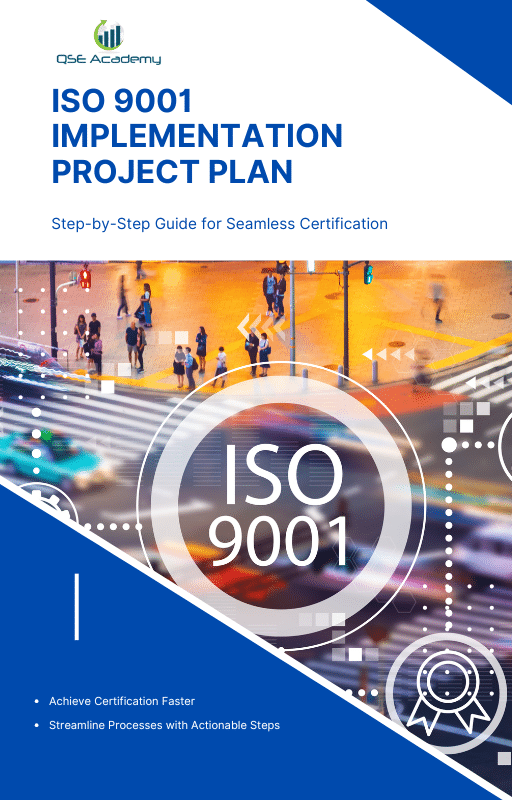ISO 9001 Cost Certification: A Comprehensive Guide
Decoding the Time Frame for ISO 9001 Cost Certification
If you’re considering ISO 9001 certification, you’re probably wondering two things: How long will it take? and How much will it cost? The truth is, there’s no universal answer because the ISO 9001 Cost Certification process depends on several factors—your business size, existing processes, employee engagement, and how prepared you are.
For some businesses, achieving ISO 9001 Cost Certification might take just a few months, while others might need a year or more. The cost can also vary widely depending on whether you use consultants, invest in training, or need extensive process improvements. But don’t worry—that’s exactly what we’re here to break down.
In this guide, we’ll decode the time frame for ISO 9001 Cost Certification, explore what impacts the duration, and share practical tips to speed up the process without cutting corners. Whether you’re a small startup or an established business, this step-by-step breakdown will help you plan effectively, optimize costs, and achieve certification efficiently.
So, let’s dive in and uncover everything you need to know about ISO 9001 Cost Certification—because getting certified shouldn’t feel like a mystery!
What is ISO 9001 Cost Certification?
If you’re looking to improve your business’s quality management system, you’ve probably come across ISO 9001 Cost Certification. But what exactly does it mean, and why should your business consider it?
Simply put, ISO 9001 certification is proof that your company follows internationally recognized quality management standards. It shows that you’re committed to consistently delivering high-quality products or services, reducing errors, and improving customer satisfaction. However, before diving in, it’s important to understand the time and cost factors involved in getting certified.
Many businesses assume that ISO 9001 Cost Certification is expensive and time-consuming, but the reality is that the cost and duration depend on several factors, such as:
✔ Company size – A small business with straightforward operations will likely achieve certification faster than a large organization with complex processes.
✔ Existing quality management system – If your business already has structured quality processes, certification can be quicker and more affordable.
✔ Internal vs. external support – Some businesses hire ISO consultants, while others handle the process internally to reduce costs.
✔ Employee training needs – Proper training ensures smooth implementation, but it can add to the overall cost and timeline.
✔ Certification body fees – Different ISO certification providers charge different rates, impacting the total investment.
Understanding the ISO 9001 Cost Certification process is crucial for planning ahead. Instead of seeing it as just another business expense, think of it as an investment in efficiency, customer trust, and long-term growth.
In the next section, we’ll break down the time frame for ISO 9001 Cost Certification and what you can expect at each stage of the journey. Whether you’re starting from scratch or improving an existing system, this guide will help you navigate the process with confidence!
How Long Does ISO 9001 Cost Certification Take?
One of the biggest questions businesses have about ISO 9001 Cost Certification is: How long does it actually take? The answer? It depends! Some businesses achieve certification in as little as three months, while others might take a year or more.
The timeline for ISO 9001 Cost Certification isn’t the same for everyone because several factors influence how quickly a company can prepare, implement, and pass the certification audit. Let’s break it down so you can get a realistic idea of what to expect.
Factors That Influence the Time Frame for ISO 9001 Cost Certification
1. Business Size and Complexity
A small business with simple processes can often achieve ISO 9001 Cost Certification faster than a large company with multiple locations and complex operations.
✔ A small service-based company might complete the process in 3–6 months.
✔ A medium-sized manufacturer with a moderate level of documentation and processes might need 6–9 months.
✔ A large corporation with multiple departments and suppliers could take 9–12 months or longer.
The more moving parts your business has, the longer it may take to align everything with ISO 9001 requirements.
2. Existing Quality Management System (QMS)
Does your company already have structured processes and a documented quality management system (QMS)? If so, ISO 9001 Cost Certification can be achieved much faster.
✔ If you already follow ISO 9001 principles, certification might only take a few months.
✔ If you’re starting from scratch, you’ll need more time to develop policies, train employees, and conduct internal audits before certification.
Businesses that ignore quality management until the last minute usually face delays, while those that proactively implement structured processes see a smoother and faster certification process.
3. Employee Training and Engagement
Your employees play a huge role in how quickly you achieve ISO 9001 Cost Certification. If your team is on board, trained, and actively engaged, the process moves much faster.
✔ Well-trained employees help implement ISO 9001 faster and more effectively.
✔ Resistance to change or lack of training can slow down progress, requiring additional time for onboarding and corrections.
✔ Investing in ISO 9001 training early on can save time later by reducing misunderstandings and ensuring smoother implementation.
The takeaway? The more engaged and knowledgeable your team is, the faster you’ll reach your ISO 9001 Cost Certification goal!
4. Certification Body Scheduling and Audit Availability
One factor that many businesses overlook? The availability of your chosen ISO 9001 certification body.
✔ Certification auditors have limited schedules, so businesses must book their audits in advance.
✔ Some ISO certification bodies have waiting lists, meaning you might need to wait weeks or even months before your external audit can be conducted.
✔ To avoid delays, start researching and scheduling your certification body as soon as possible.
If you wait until the last minute to book an auditor, you could add unnecessary delays to your ISO 9001 Cost Certification process.
Estimated Time Frame for Each Stage of ISO 9001 Cost Certification
To help you get a clearer picture, here’s a rough timeline of how long each phase of the ISO 9001 Cost Certification process might take:
📌 Gap Analysis & Initial Planning (1–2 Months) – Identify what’s missing and create an action plan.
📌 Developing Your Quality Management System (2–4 Months) – Create policies, procedures, and documentation.
📌 Employee Training & Internal Audits (1–3 Months) – Train staff, conduct mock audits, and fix any gaps.
📌 Stage 1 Certification Audit (Documentation Review) (1 Month) – The auditor assesses your QMS readiness.
📌 Stage 2 Certification Audit (Final Assessment) (1–2 Months) – The auditor evaluates your business in action.
On average, businesses complete ISO 9001 Cost Certification within 6 to 12 months, but some finish sooner if they have a head start on their quality processes.
How to Speed Up ISO 9001 Cost Certification Without Cutting Corners
If you want to achieve ISO 9001 Cost Certification faster, here are some expert tips:
✔ Start with a gap analysis – Understanding where you stand helps you focus on the most important improvements first.
✔ Use ISO 9001 templates and documentation software – Automating documentation saves time and effort.
✔ Assign a dedicated ISO 9001 champion – Having someone lead the process keeps everything on track and moving forward.
✔ Train employees early – The sooner your team understands ISO 9001, the smoother the implementation will be.
✔ Schedule your certification audit in advance – Avoid waiting lists by booking your auditor as soon as possible.
Final Thoughts: Plan Ahead for a Smoother Certification Process
The timeline for ISO 9001 Cost Certification depends on your business size, readiness, and level of preparation. While some companies get certified in as little as three months, others may need a year or more to fully implement ISO 9001 requirements.
By planning ahead, training employees, and streamlining documentation, you can shorten the process and achieve certification efficiently—without unnecessary delays.
Next up, we’ll dive into the actual costs involved in ISO 9001 certification and what factors influence pricing. Stay with me—you’ll want to know how to get certified without overspending!
Understanding the Costs of ISO 9001 Cost Certification
Now that we’ve covered the time frame for ISO 9001 Cost Certification, let’s talk about another major factor: the cost. If you’ve been wondering, “How much does ISO 9001 certification actually cost?”, you’re not alone. Many businesses worry about expenses, but the truth is, the cost of ISO 9001 Cost Certification varies based on several key factors.
The good news? ISO 9001 certification doesn’t have to break the bank. When approached strategically, businesses can optimize costs and maximize value. Let’s break down the key expenses involved and how you can manage them efficiently.
What Affects the Cost of ISO 9001 Certification?
The total cost of ISO 9001 Cost Certification isn’t a fixed number—it depends on your business’s specific needs and circumstances. Here are the main factors that influence pricing:
1. Business Size and Complexity
- A small business with simple operations will have lower costs compared to a large company with multiple locations and departments.
- More complex businesses need more extensive documentation, training, and audits, which can increase overall costs.
2. Consultant and Training Costs
- Some businesses hire ISO 9001 consultants to guide them through the process, which can range from $3,000 to $15,000, depending on scope and complexity.
- If employees need training, ISO 9001 courses can cost between $500 and $2,500 per session.
- While hiring a consultant adds to the cost, it can save time and ensure compliance from the start, avoiding expensive mistakes later.
3. Internal Resource Allocation
- If your team handles ISO 9001 certification internally, you might save on consultant fees but will need to invest time and effort.
- Some businesses appoint an ISO 9001 project lead to manage the process, which minimizes external costs but requires dedicated employee time.
4. Certification Body and Audit Fees
- The external certification audit is one of the biggest costs in ISO 9001 Cost Certification.
- Prices vary, but most businesses spend between $4,000 and $10,000 for the initial certification audit.
- Annual surveillance audits (required to maintain certification) typically cost $1,000 to $3,000 per year.
5. Software and Documentation Tools
- Businesses can save time and money by using document management software to streamline ISO 9001 compliance.
- Depending on features, ISO 9001 compliance software can cost between $500 and $5,000 per year.
Breaking Down the Costs: A Typical ISO 9001 Certification Budget
To give you a clearer picture, here’s a general cost breakdown for different business sizes:
| Business Size | Estimated Certification Cost (First Year) | Estimated Annual Maintenance Cost |
|---|---|---|
| Small Business (1-50 employees) | $5,000 – $10,000 | $1,500 – $3,000 |
| Medium Business (51-250 employees) | $10,000 – $25,000 | $3,000 – $5,000 |
| Large Business (250+ employees) | $25,000+ | $5,000 – $10,000 |
💡 Note: These numbers vary based on location, industry, and specific certification body fees.
How to Reduce the Cost of ISO 9001 Certification Without Cutting Corners
If the numbers above seem high, don’t worry! There are several ways to lower the cost of ISO 9001 Cost Certification while still achieving full compliance.
✔ Use Free or Low-Cost Gap Analysis Tools – Before hiring a consultant, try using free online ISO 9001 self-assessments to identify gaps.
✔ Train Employees Internally – Instead of expensive external training, consider online ISO 9001 courses or appointing an internal ISO champion to lead the process.
✔ Leverage Existing Processes – If your business already has structured workflows and quality control, you may need fewer adjustments, reducing costs.
✔ Choose the Right Certification Body – Not all certification bodies charge the same fees. Compare pricing and availability to find the best deal without compromising quality.
✔ Use Cloud-Based QMS Software – Automating document management, internal audits, and compliance tracking can save time and reduce manual errors, making the process more efficient.
Final Thoughts: Investing Wisely in ISO 9001 Cost Certification
Yes, ISO 9001 Cost Certification comes with expenses, but when done right, it’s an investment in long-term business success. Instead of seeing it as just another cost, think of it as a tool to improve efficiency, reduce waste, and open new opportunities.
By understanding the costs upfront and using smart cost-saving strategies, businesses can achieve ISO 9001 certification efficiently and affordably.
Next up, we’ll cover how to speed up the ISO 9001 certification process while keeping costs under control—so stay with me for even more time-saving strategies!
How to Speed Up ISO 9001 Cost Certification Without Cutting Corners
So, you’re ready to get ISO 9001 Cost Certification, but you don’t want the process to drag on forever. That’s completely understandable! While certification can take anywhere from a few months to a year, there are ways to speed things up while keeping costs under control.
The key is efficiency—preparing properly, organizing your documentation, and staying proactive. Let’s dive into some practical tips that can help you get certified faster without cutting corners.
1. Start with a Free Gap Analysis
Before making any major moves, take a step back and evaluate where your business currently stands. A gap analysis helps identify what’s already in place and what still needs work before your ISO 9001 Cost Certification audit.
✔ Use online self-assessment tools to check your compliance with ISO 9001 standards.
✔ Conduct an internal review of your processes—do they align with ISO 9001 requirements?
✔ If possible, consult an ISO expert for a preliminary assessment—this can save you time by giving you a clear roadmap.
A well-planned gap analysis prevents last-minute surprises and makes your ISO 9001 journey faster and smoother.
2. Document Processes Clearly and Efficiently
One of the biggest slow-downs in ISO 9001 Cost Certification is poorly documented processes. If your business lacks clear procedures and records, expect delays.
✔ Keep documentation simple and structured—overcomplicating it only creates confusion.
✔ Use ISO 9001 document templates to save time instead of starting from scratch.
✔ Make sure all employees can easily access and understand your policies and procedures.
When your documentation is well-organized and up-to-date, your certification audit will go much more smoothly.
3. Train Employees Early to Avoid Bottlenecks
Many businesses underestimate the time needed for employee training during the ISO 9001 Cost Certification process. If your team isn’t properly trained, mistakes happen, and certification takes longer.
✔ Offer early training sessions so employees understand ISO 9001 requirements before implementation begins.
✔ Use online training programs to make learning more flexible and cost-effective.
✔ Assign an ISO 9001 champion within your company to lead training efforts and answer questions.
A well-trained team reduces errors, speeds up implementation, and makes audits easier.
4. Conduct Internal Audits Before the Official Certification Audit
Imagine preparing for a big exam without taking a practice test first. That’s what skipping an internal audit feels like! Internal audits help catch issues before the external certification audit, saving time and money.
✔ Conduct a mock audit to see how well your business meets ISO 9001 Cost Certification requirements.
✔ Identify non-conformities and fix them before the external auditor arrives.
✔ Regular internal audits ensure continuous improvement and keep processes in check.
Fixing problems before the official audit prevents delays and increases your chances of passing on the first try.
5. Schedule Your Certification Audit in Advance
Here’s something most businesses don’t realize until it’s too late—ISO 9001 certification bodies have limited availability. If you wait too long to book your audit, you could face months of delays.
✔ Start looking for a certification body early and compare their availability.
✔ Book your audit date as soon as possible to avoid getting stuck on a waiting list.
✔ Ask your certification body about pre-audit reviews to identify potential issues before the final assessment.
By planning ahead, you eliminate unnecessary waiting time and keep your ISO 9001 process on track.
6. Use ISO 9001 Software to Automate Processes
Want to speed things up even more? Consider using ISO 9001 compliance software to manage documents, audits, and workflows.
✔ Digital tools help organize documentation, reducing the time spent on manual paperwork.
✔ Some software platforms offer built-in checklists and reminders, ensuring no steps are missed.
✔ Automating quality control and reporting keeps your business ISO-ready at all times.
Many businesses investing in ISO 9001 Cost Certification find that automation helps reduce both time and costs.
Final Thoughts: Speed Up Certification Without Compromising Quality
Getting ISO 9001 Cost Certification doesn’t have to take forever—but it also shouldn’t be rushed. By using smart planning, structured documentation, early training, and internal audits, you can achieve certification faster while maintaining high-quality standards.
Here’s a quick recap of how to speed up the process:
✅ Start with a gap analysis to identify missing elements.
✅ Keep documentation simple, clear, and accessible.
✅ Train employees early to avoid delays during implementation.
✅ Conduct internal audits before the external certification audit.
✅ Schedule your audit in advance to prevent waiting list delays.
✅ Consider using ISO 9001 software to streamline processes.
By following these steps, you’ll save time, reduce costs, and achieve ISO 9001 certification without unnecessary stress.
Up next, we’ll wrap things up with how to ensure long-term success after certification—because staying compliant is just as important as getting certified!
Maintaining Your ISO 9001 Cost Certification: Ensuring Long-Term Success
So, you’ve achieved ISO 9001 Cost Certification—congratulations! But here’s something many businesses overlook: getting certified is just the beginning. To truly maximize the benefits of ISO 9001, you need to maintain compliance, continuously improve, and ensure that quality management remains a core part of your business operations.
The good news? Maintaining ISO 9001 doesn’t have to be complicated or expensive. With the right strategies, you can keep your certification active while minimizing costs and effort. Let’s dive into how you can ensure long-term success after achieving ISO 9001 Cost Certification.
1. Keep Your Quality Management System (QMS) Active
One of the most common mistakes businesses make after getting ISO 9001 Cost Certification is thinking that the process is over. The truth is, ISO 9001 is about continuous improvement—not just a one-time achievement.
✔ Regularly review and update your quality policies to reflect any changes in your business.
✔ Make sure employees continue to follow documented processes and best practices.
✔ Schedule ongoing training sessions to keep your team engaged and informed.
By keeping your QMS alive and active, you ensure that your business remains compliant without scrambling before an audit.
2. Conduct Regular Internal Audits
Internal audits aren’t just for the ISO 9001 Cost Certification process—they’re essential for keeping your business running smoothly year after year.
✔ Plan quarterly or biannual internal audits to check for any gaps in compliance.
✔ Use audits as a tool to find and fix inefficiencies before they become bigger problems.
✔ Assign an internal ISO 9001 champion to oversee compliance and process improvements.
The more proactive you are with audits, the less stressful your next external certification renewal will be.
3. Stay Prepared for Surveillance Audits
Once you achieve ISO 9001 Cost Certification, your certification body will conduct annual surveillance audits to ensure you’re still meeting the requirements.
✔ Keep all documents, records, and reports organized so they’re ready for review.
✔ Address any minor non-conformities immediately to prevent them from becoming major issues.
✔ Treat the surveillance audit as a learning experience, not just a compliance requirement.
These audits are not as intense as the initial certification audit, but they’re still important to maintain your certification status.
4. Improve Processes and Reduce Costs Over Time
One of the biggest advantages of maintaining ISO 9001 Cost Certification is the opportunity for continuous cost savings. ISO 9001 is designed to eliminate inefficiencies, reduce waste, and improve workflows, all of which contribute to lower operational costs.
✔ Identify areas where automation or better resource management can cut unnecessary expenses.
✔ Collect feedback from employees and customers to refine your quality management approach.
✔ Use performance metrics to track improvements and identify cost-saving opportunities.
Businesses that actively improve their processes see real financial benefits from ISO 9001 over time.
5. Keep Employees Engaged in the Quality Culture
Your team plays a huge role in maintaining ISO 9001 Cost Certification, so keeping them engaged is key. If employees don’t see the value in ISO 9001, they’re less likely to follow procedures correctly.
✔ Hold regular team meetings to discuss quality goals and progress.
✔ Recognize employees who contribute to quality improvements.
✔ Encourage a culture of continuous improvement, where employees feel empowered to suggest better ways of doing things.
When your team embraces ISO 9001 as part of their daily routine, maintaining compliance becomes effortless.
Final Thoughts: ISO 9001 is a Long-Term Business Asset
Achieving ISO 9001 Cost Certification is a huge milestone, but maintaining it is where the real value lies. By keeping your QMS active, conducting regular audits, staying prepared for surveillance, improving efficiency, and engaging employees, your business can continue to thrive under ISO 9001 standards.
Remember, ISO 9001 isn’t just about compliance—it’s about building a smarter, more efficient, and more competitive business. With the right approach, your certification won’t just be a requirement—it will be a powerful tool for long-term success.
So, as you move forward, ask yourself: How can I use ISO 9001 to not only maintain compliance but also drive continuous improvement and cost savings? The answer to that question will set your business up for long-term growth and success.
Looking for More Resources on ISO 9001?
Looking for ISO 9001 Resources Tailored to Your Industry?
If this article helped clarify ISO 9001, take the next step with our industry-focused tools designed to simplify your certification journey:
📦 ISO 9001 Documentation Kits by Industry: Whether you’re in manufacturing, construction, consulting, or healthcare — we have complete, ready-to-use documentation tailored for your sector.
🎓 Online ISO 9001 Training: Learn how to implement ISO 9001 effectively with our easy-to-follow video lessons, real-world examples, and practical exercises.
📋 ISO 9001 Checklist: Download our step-by-step checklist to ensure your QMS meets all the 9001:2015 requirements from start to finish.
These resources are crafted to save you time, reduce stress, and help you achieve certification with confidence. Choose your industry and start now!

make ISO standards less intimidating and more approachable for everyone.
Whether it’s ISO 9001, ISO 22000, or the cosmetics-focused ISO 22716,
I’ve spent my career turning complex jargon into clear, actionable steps
that businesses can actually use. I’m not here to call myself an expert—I prefer “enthusiast” because I truly love what I do.
There’s something incredibly rewarding about helping people navigate food safety and quality management systems
in a way that feels simple, practical, and even enjoyable.
When I’m not writing about standards, you’ll probably find me playing Piano 🎹, connecting with people, or diving into my next big project💫.
- I’m an engineer specialized in the food and agricultural industry
- I have a Master’s in QHSE management and over 12 years of experience as a Quality Manager
- I’ve helped more than 15 companies implement ISO 9001, ISO 22000, ISO 22716, GMP, and other standards
- My clients include food producers, cosmetics manufacturers, laboratories, and service companies
- I believe quality systems should be simple, useful, and efficient
- Outside of work, I play piano and love learning something new every day
Let’s make ISO less about stress and more about success! 🙏


